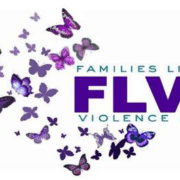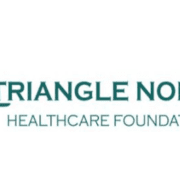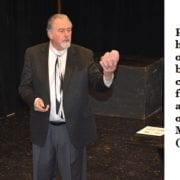Free Food Distribution Thurs, Apr 12, 2018
/by John C. RoseThe First Baptist Church of Henderson, NC will coordinate a free food distribution on Thursday, April 12 from 10 a.m. until 12 noon. It will take place at the Vance County Regional Farmers Market, located at 210 Southpark Drive, off Beckford Drive.
First Baptist volunteer Betty Boyd said, “In partnership with St. James Missionary Baptist Church, we are able to offer this distribution once a month! We are responsible for April, June, August, October, December, and February. St. James coordinates the other months. In February, we distributed 10,207 pounds of food.”
In an earlier article on WIZS.com, Boyd said, “This is the same distribution that St. James Missionary Baptist Church has organized and coordinated. They have been offering this service every other month. They asked First Baptist to partner with them to bring this food distribution to the area all year. We are excited about the opportunity to supplement food resources for around 200 families each month.”
The food distribution is open to anyone and is on a first come/first served basis. Citizens coming to the distribution are asked to remain in their car. Police and Sheriff’s Department personnel will direct traffic into the Farmer’s Market parking lot.
Boyd said, “The distributions that I have volunteered for with St. James Baptist have usually ended around 11:15 a.m. when they have given out all boxes. If a car has two adults, they will receive two boxes of food. We are very excited to be able to bring this supplement of fresh vegetables and fruits to our community!”
Families Living Violence Free: Relationship Safe Haven
/by WIZS Staff— WIZS has been asked to announce.
YOUR RELATIONSHIP SHOULD BE A SAFE HAVEN NOT A BATTLEFIELD.
THE WORLD IS HARD ENOUGH ALREADY.
It’s time to say enough! SPEAK UP!
If you or someone you know is a victim of Domestic Violence, please call Families Living Violence Free at 919-693-5700 Crisis Line or Hispanic Crisis Line 919-690-0888 Day or Night! We are here for you!
You could be saving a life….it might be your own.
—
Peggy Roark
Adult & Empowerment Services
Sexual Assault Advocate & PREA Coordinator
Families Living Violence Free
125 Oxford Outer Loop Road
PO Box 1632
Oxford, NC 27565
Email: Proark@flvf.org
Website: www.flvf.org
(This is not a paid advertisement.)
Is It Time for a Colonoscopy?
/by John C. RoseThe following is re-published with permission from Maria Parham Health. It is offered as news in the public interest. It is not a paid advertisement. This is not medical advice. If you would like to view the original story on the MPH web page, please click here.
Do you remember when you used to put on your favorite bell bottoms and disco dance the night away? If you do, then it’s probably time to think about a routine colonoscopy screening. According to the American Cancer Society, colorectal cancer is the third most common cancer diagnosed in both men and women, excluding skin cancers. And the vast majority of these cases occur in people 50 and older.
The good news is that the overall incidence of, and death rates associated with, colorectal cancers have been on the decline for more than a decade, thanks in large part to effective colonoscopy screenings that can detect the disease in its early stages.
“Colonoscopies are so important because they can improve our ability to detect colorectal cancer quickly and early, making the disease much more easily treatable” says Dr. Mark Dubinski, Gastroenterologist at Maria Parham Health. “Colonoscopies can also help us identify and remove colorectal polyps before they even become cancerous. The benefits are enormous.”
What are the symptoms?
Colorectal cancer often has no symptoms in its early stages – another reason that screenings are so important. Still, you should see your doctor if you have any of these warning signs:
Bleeding from the rectum;
Blood in the stool or in the toilet after a bowel movement;
Change in your bowel habits, including diarrhea or constipation or a change in the consistency of your stool;
Persistent cramping or discomfort in the lower abdomen;
An urge to have a bowel movement when the bowel is empty;
Constipation or diarrhea that lasts for more than a few days;
Decreased appetite;
Nausea or vomiting; and
Unintentional weight loss.
While these symptoms can also be indicative of other health conditions, your doctor can help you get to the root of the issue and determine the underlying cause.
How can I help prevent it?
Colonoscopy screenings are the number one way you can reduce your risk of colorectal cancer since the screenings can help detect the disease early or find polyps before they become cancerous. While the vast majority of new cases occur at age 50 and over, the disease does not discriminate and can happen to men and women at any age.
“We recommend that everyone talk to their doctor about their colorectal cancer risks and discuss when a colonoscopy could be right for them,” Dubinski says.
You can also be proactive in prevention in other ways. Living a healthy lifestyle that includes daily exercise, a healthy diet, maintaining a healthy weight, limiting your alcohol intake and eliminating smoking can reduce your risk for colorectal and many other forms of cancer. Knowing your family’s medical history is also important – a history of the disease in your immediate family puts you at a higher risk for the disease.
Contact 800.424.DOCS (3627) to find a physician and take the next steps to schedule your colonoscopy today.
SIDEBAR: What to Expect During a Colonoscopy
Colonoscopies are an easier procedure than many realize. Shortly before the procedure, you will likely be given pain medication and a sedative to minimize discomfort. During the approximately 30-minute procedure, any polyps found will be removed by the doctor and tissue samples will be sent for a biopsy.
Keep in mind that you will be instructed to follow a special diet the day before your procedure and will need to have someone available to take you home afterward.
— courtesy MPH
(MPH is an advertising client of WIZS. This is not a paid advertisement.)
Triangle North Healthcare Foundation’s 2018 Grant Cycle opens March 15
/by John C. Rose— press release
Triangle North Healthcare Foundation is seeking partners to help measurably improve health in Vance, Warren, Franklin, and Granville counties, with the opening of the grant funder’s sixth grant cycle on March 15, 2018.
To be considered for a grant with Triangle North Healthcare Foundation, you must represent a nonprofit organization, school, or governmental agency that serves the Triangle North region— Warren, Vance, Granville, and/or Franklin counties, according to the Foundation’s executive director Val Short. “Your project should fall into one of our five funding priorities, which are Chronic Disease, Mental Health & Substance Abuse, Nutrition & Physical Fitness, Success in School as related to Health & Fitness, and finally, Reproductive Health,” said Short.
The first step in the grant application process is the Letter of Interest, which will be due May 1st. The Letter of Interest form is available on the online Grant Portal, which can be accessed via the Foundation’s website, www.tnhfoundation.org “We strongly suggest that anyone interested in applying for a grant should contact us first to request a meeting,” said Short. “We can discuss the details of a project and determine if it falls within our funding guidelines.” To schedule a meeting to discuss a potential grant project, call 252-598-0763.
Since its first grant cycle in 2013, Triangle North Healthcare Foundation has awarded over $1 million in grants to a variety of programs and projects throughout the region, including the Henderson YMCA’s Save Our Kids and Girls on the Run programs, Boys & Girls Clubs’ healthy teen programs, N.C. MedAssist’s free pharmacy for the uninsured, Smart Start, and many others. A full listing of TNHF grant programs is available on the Foundation’s website.
The mission of the Foundation is “to encourage, support, and invest in quality efforts that measurably improve health in the Triangle North region.” The Foundation cannot accomplish this alone. “Through our partnerships with community organizations, formed through grantmaking, this Foundation can make a difference in the health status of our communities,” said Mrs. Short. “Please let us hear from you!” she added.
Triangle North Healthcare Foundation is a nonprofit regional grantmaking organization based in Henderson, NC, which supports and invests in health and wellness initiatives and programs that will impact health in a positive way in Warren, Vance, Granville, and Franklin counties. Funding for the Foundation’s grantmaking was made possible by the endowment established after the merge of Maria Parham Medical Center and Duke Lifepoint.
Researcher explores “Your Brain on Its Own” in VGCC lecture
/by John C. Rose— courtesy VGCC
To deal with change, manage stress and gain insight into making good decisions, it’s best to understand yourself and how your brain works, neuroscience researcher Phil Dixon shared with an audience at Vance-Granville Community College on Feb. 27, for his second of three sessions on “Using Your Brain for a Change.”
“In all of these situations, if you don’t understand yourself, you’re not going to be able to understand others,” Dixon said. A resident of Oxford, N.C., who is originally from England, Dixon has worked in a variety of industries around the world, including a time with Apple. His passion for neuroscience led to the series of lectures that are being sponsored by VGCC’s Office of the Endowment. The first was held in January, and he’ll conclude with a session later this month.
In the February session, “Your Brain on Its Own,” Dixon focused on various profiles, tendencies, influences and contexts that help persons understand who they are and how they are likely to react. His research about the brain is driven by a desire to help individuals become better leaders and make better decisions in their daily lives.
Dixon explored a variety of “profiles” designed to help individuals better understand themselves. The “Five Ps” profile, for example, reveals that we are all different. “What is a threat to one person may not be a threat to another,” Dixon noted.
“Character Profile,” meanwhile, begins with distinguishing individuals by whether they have an “ask” or a “tell” orientation. “To what degree do you tell people what to do, versus asking people what should be done?” he asked. From that vantage point, individuals are seen in one of four categories: Analytical (being correct vs. wrong), Driver (wanting results vs. fearing failure), Amiable (valuing relationships vs. fearing rejection) and Expressive (feeling exhilaration vs. a fear of not being good enough).
Meanwhile, knowing your tendencies — biases, habits, patterns of behavior, the triggers that may cause reactions, and paradigms — will help you better understand how to maintain your focus, Dixon explained.
He also noted the importance of understanding those things that have an influence on your life — beliefs, values, familiarity, memories, available choices, intelligence, etc. — and the context in which you view the world — your personal experiences, life cycles and recent events. “Your genetics make a difference,” he added. “The current data says that your genetics give you about 40 percent of your character.”
In discussing the dynamics of how the brain reacts to change, Dixon explored the learning process required should a person decide to go through a change — feasibility, appeal, agreeableness, resistance to change, readiness to change, and the celebration of small successes, among other points.
He recalled the character, “Yoda,” from the “Star Wars” movies, who said, “Do. Or do not. There is no try.” Dixon noted, “When we say that I’ll ‘try’ and do that, what happens in your brain? You set yourself up with an excuse. I only said I’ll try and do it. I didn’t say I’d do it.”
Dixon also explored strategies for dealing with stress, ways to prevent stress and how important it is to get enough sleep and maintain positivity in your life.
Decision making, he said, needs to be carefully planned. Making decisions is only sometimes logical, rational, conscious and data-based, he said. It’s often based on emotion and is nonconscious and irrational, clouded by tendencies such as bias, habits and patterns.
“To make good decisions, understand yourself. Be aware of what your tendencies are around decision making,” he offered. “Prepare the process of making decision before you have to make decisions.” For many people, the time of day for deciding is paramount. “If you have tough decisions to make, make them in the morning,” he said.
The best insights come when you are at your freshest, he said. “When do you have your best ideas?” he asked. “The conditions for having insight tend to be when you are relaxed, first thing in the morning, when you are jogging, when you are in the shower, when you are doing something repetitive that doesn’t require your pre-frontal cortex to be taking control, and when you’re not too happy. If you are only happy, those signals override it. When you are slightly reflective, slightly far away and when you are not thinking about the problem, those are the times you are likely to have your biggest insights.”
The concluding session in Dixon’s series, “Your Brain with Another Person,” scheduled for Tues., March 27, will explore bias and the nonconscious brain, communication, coaching, influencing and negotiating, encouraging innovation in others and helping others change. The lecture is scheduled for 10:30 a.m. to noon, in the small auditorium in Building 2 on VGCC’s Main Campus in Vance County. The public is invited. For more information, contact VGCC Endowment Director Eddie Ferguson at (252) 738-3264 or fergusone@vgcc.edu.
–VGCC–
Home Heat Payment Assistance Possible Until 3-31-18
/by John C. RoseYou may be eligible for assistance with your home heating costs. An additional grant of funding has made it possible to apply for home heat payment assistance through the Vance County Department of Social Services and a program called Low Income Energy Assistance.
Please follow this link for LIEP.
Please check out the Vance County DSS page by following this link for additional services offered.
If you need help with home heating, apply soon. You can only apply through March 31 or until funds run out. Applications can also be made in December, so this is a program to tuck away in your calendar if you might be able to benefit in during the next heating season this fall and winter.







